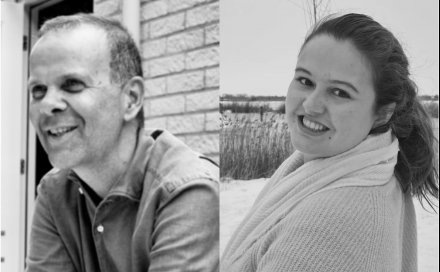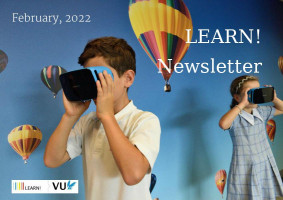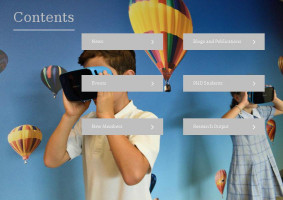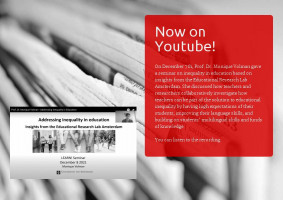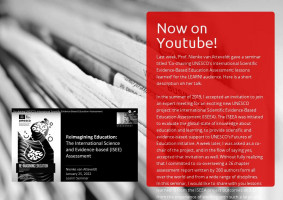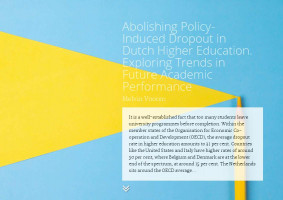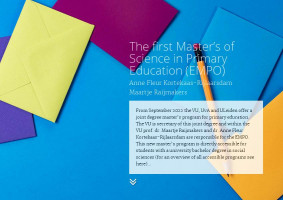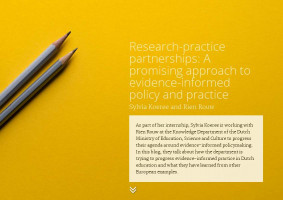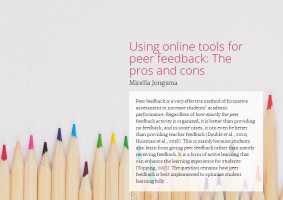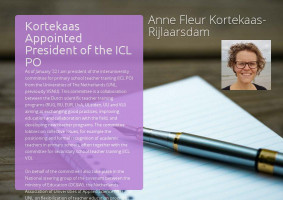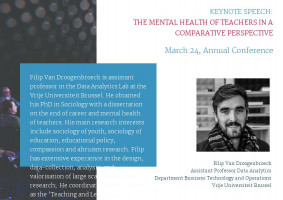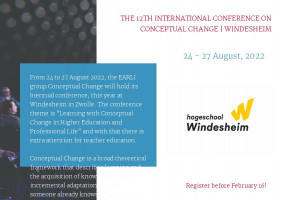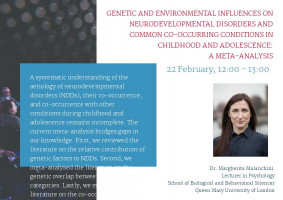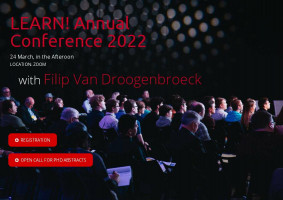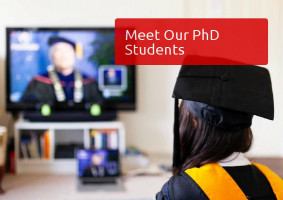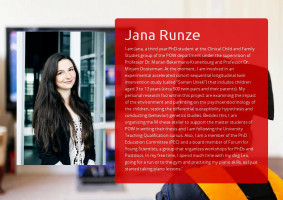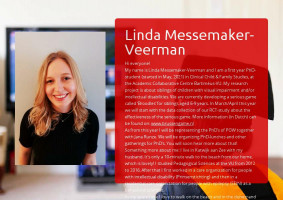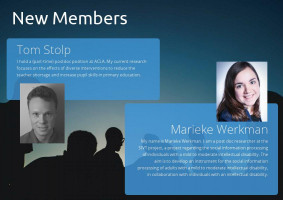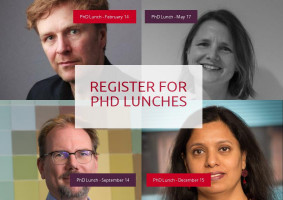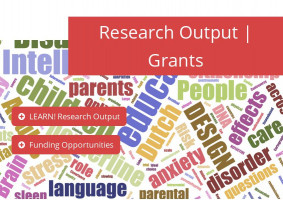As part of her internship, Sylvia Koeree is working with Rien Rouw at the Knowledge Department of the Dutch Ministry of Education, Science and Culture to progress their agenda around evidence-informed policymaking. In this blog, they talk about how the department is trying to progress evidence-informed practice in Dutch education and what they have learned from other European examples.
Navigating the limitless amount of knowledge
How to navigate the vast amount of knowledge that is generated by a growing number of scientists, consultants, stakeholder organizations, non-governmental organizations etc.? And how to make this knowledge actionable for use in classrooms, school boardrooms and ministerial offices? These are some of the perennial challenges in the field of education practice – research – policy relationships.
"What is currently lacking, is a central place where knowledge is collected, systematized and validated in an authoritative way."
A shift from linear relations to ecosystems and the role of government
How to deal with these challenges? In the thinking about evidence-informed practice and policy, a shift has taken place from linear to relationship-based approaches and ecosystems perspectives. A linear way of working is focused on dissemination in targeted formats and high accessibility of research. The point of departure is research. relational and ecosystems-approaches are built on professional partnerships between practitioners and researchers, empathy and relationship skills, leadership and sustainable infrastructures. The starting point is the actual decision making taking place in classrooms, school boardrooms and ministries, and looking for windows to feed knowledge into these decision making processes. Continuous interaction between practitioners, researchers and policymakers is the key to build trust and knowledgeability about each other’s worlds.
In the realm of education policy, interaction between policy makers and researchers takes place in a variety of ways, mostly in the context of research for policy. The Knowledge Department at the Ministry of Education, Culture and Science actively promotes this interaction. However, in a way it is fragmented, organized around specific research projects or bigger research programs.
What is currently lacking, is a central place where knowledge is collected, systematized and validated in an authoritative way. We are currently exploring how this could be
organized on a national level. The Expert Committee on Accessibility in Higher Education is one of the examples.
It was established in 2021 by the Ministry together with the National Initiative for Education Research (NRO), the Dutch education research funding organization. The Expert Committee aims to unlock both evidence-based and practice-based knowledge about effective accessibility practices and to make it applicable for institutions and policymakers.In the realm of education practice, we have been investing a lot in creating practice-research collaborations, together with our partners in the field and researchers. Although many collaborations have been established in the last ten years, overall it is still a drop in the ocean. The big challenge is to organize practice-research networks at scale.
"Continuous interaction between practitioners, researchers and policymakers is the key to build trust and knowledgeability about each other’s worlds."
Examples from across Europe
We have been looking for examples in several European countries, and we have learnt some lessons we would like to share.
Based on research and discussions, several principles for a well-working research-practice partnership have been drawn up. First of all, it is important that all parties concerned are equal partners and actively share, spread and create knowledge. All the parties have their own knowledge and experiences to bring into the network, both research-based and practice-based. Secondly, practice issues are the starting point of scientific research. The partnerships take place on both the regional and the national level, and are connected to a knowledge centre. This centre makes sure the collaboration and research run smoothly and provides a research database, including translation into practice. Lastly, the partnership contributes to the professionalization of teachers and school leaders and to promoting a research culture in schools.
We have also seen some fine examples of research-practice partnerships in Europe. Below, we present only a few models from a much richer collection.
Research Schools in England, Flanders and The Netherlands
One interesting example are the English Research Schools of the Education Endowment Foundation. These Research Schools form a regional or local network and play a role as ambassadors for the use of evidence-informed interventions in schools. Professionalization of teachers, focused on the use of evidence in the schools, is also an important part of the Research Schools. Flanders has recently started a pilot with so called ’model schools’. In The Netherlands, the idea of research schools is still being developed to make it fit for the Dutch context.
"The big challenge is to organize practice-research networks at scale."
Networks in Estonia, Ireland, Norway, England and Belgium
Other examples are different networks from Estonia, Ireland, Norway, England and Belgium. The Norwegian New Competence Model focuses on the professionalization of educational professionals by working on training programs to improve education, based on practice issues. The Irish national forum, Belgian EAPRIL and Estonian Education Forum offer a platform for teachers, researchers, and policymakers to work together, share knowledge and experiences, and work on the professionalization and the purpose of improving education. In England, both the Coalition for Evidence-based Education and the What Works Network try to support evidence-informed working in practice and policy by providing an overview of what works, according to scientific evidence.
As already stated, the big challenge is not only to translate these models to the Dutch context, but even more to realize practice-research partnerships as a routine throughout the education system. Currently, the Ministry is establishing a so called knowledge community as part of the National Program for Education, i.e. the Covid recovery strategy. The knowledge community is a collaborative effort of representative organisations of teachers, school leaders, school boards, and the Ministry. It will build on existing structures and networks. The aim is to create a knowledge infrastructure that is sustainable in the long run.
